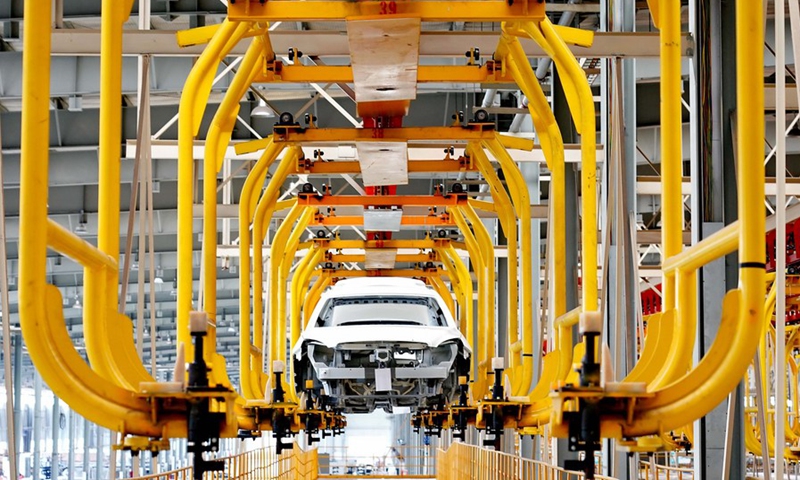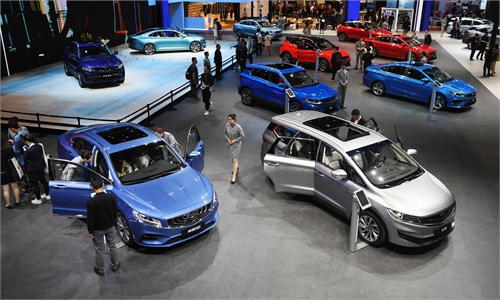
Photo taken on July 6, 2019 shows a production line at a subsidiary of Beijing Electric Vehicle Co., Ltd. (BJEV), a new energy vehicle producer, in Huanghua City, Hebei Province.Photo: Xinhua
The electric vehicle (EV) market in India, though still quite small with less than 1 percent of the total sales, has huge growth potential if it opts to open to competition by lowering import tariffs, experts told the Global Times, adding that it will offer opportunities for advanced Chinese EV players.
India is considering slashing import duties on electric cars to 40 percent from the current 60 percent for models priced at less than $40,000 including car cost, insurance and freight, Reuters reported on Monday, citing two senior government officials. The report came days after US-based Tesla appealed for a tax cut.
For EVs valued at more than $40,000, India may cut the rate to 60 percent from 100 percent.
"If the Indian government is seriously considering changing its protectionist policy by slashing the levies on imported EVs as reported, it would be a welcome move," Mei Songlin, an auto industry analyst based in Shanghai, told the Global Times on Tuesday.
The reported move showed that India wants the type of innovation that could be brought by Tesla on the EV front, Mei said.
"Global efforts to tackle climate change by reducing carbon emissions will also pressure the Indian government to accelerate the shift toward embracing EVs," he said.
India is expected to be the world's third-largest vehicle market by volume by 2026. The EV market is expected to grow at a compound annual rate of 44 percent from 2020 to 2027 and hit yearly sales of 6.34 million by 2027, according to Invest India, the National Investment Promotion and Facilitation Agency.
The growth potential must be released to attract mature market players to build up the supply chain. Otherwise, it will take longer for the government's targets to be realized, an auto industry insider who asked to remain anonymous told the Global Times.
"Chinese-made EVs or Chinese models made in India could yield ideal results," Mei said, based on China's mature technology and experience in EV and battery manufacturing. China has achieved EV leadership ahead of the EU and US.
The ZS EV of MG Motor, owned by Chinese automaker SAIC, received more than 600 bookings in July, the highest since it was launched in India in January 2020, data from the company showed.
Despite the good outlook, EVs remain to be a fresh thing in India, taking only 0.2 percent of total auto sales in 2020, selling only 5,000 units. In China, the proportion has exceeded 5 percent with more than 1.3 million units of EVs sold in 2020, official data showed.
"Due to the high price of non-locally produced parts and batteries, and lack of infrastructure like charging stations, even if the Indian market is large, EVs arel difficult to be accepted by the public in the price-sensitive market," the insider noted.

